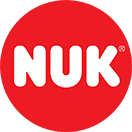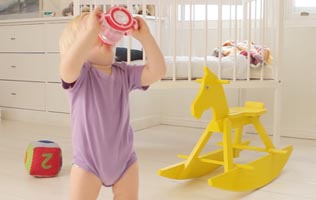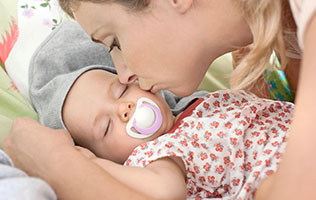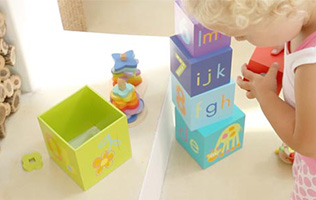Our demands for high quality are shown in our uncompromising choice of raw materials, product safety, environmental impact and constant quality control. Based on its own studies and scientific findings, NUK regularly optimises its product range. That is why we gave up using polycarbonate (PC) with its BPA content in our bottle production considerably long before the legal ban. Here is where you can find what you need to know about this topic.
What is BPA?
The abbreviation BPA stands for Bisphenol A. BPA is a substance in the synthetic material, polycarbonate (PC), which is found in many products we use daily, e.g. plastic bags and food packaging, but also mobile phones and CDs as well as sunglasses, adhesives and nail polish.
Why did BPA come under criticism?
While the use of BPA in the production of the synthetic material PC was widely unnoticed up to the turn of the millennium, a discussion among medical practitioners and scientists began then about the effects of BPA on living organisms. The available studies were not consistant and therefore, different countries and different institutes were very contradictory in their assessments. An open debate picked up on these critical judgements and turned BPA into a subject much discussed in the media.
As market leader with many awards for it quality products, NUK has many years of experience with baby bottles made from BPA-free materials such as glass or polypropylene (PP), for example. By completely renouncing BPA, NUK gave some piece of mind back to parents already at an early stage. The ban on manufacturing and selling baby bottles containing BPA in the EU came into force on 1st June, 2011. NUK had already dispensed with polycarbonate bottles that contained BPA long before the demand of the EU and therefore, years before the final banning, could brand its baby products as “BPA-free”.
What is the authorities’ assessment of the risks from BPA?
To find out what the appropriate authorities such as the European Food Safety Authority (EFSA) or the German Federal Institute for Risk Assessment (BfR) have to say on the topic of BPA, you can go to their websites:
European Food Safety Authority (EFSA)
Federal Institute for Risk Assessment (BfR)
What are NUK BPA-free products made from?
The product range for alternatives without BPA is wide. Precisely which materials they are, we explain for you here:
Glass
One of the oldest materials known to man is also used by NUK in the production of baby bottles. Glass is particularly hygienic and heat- resistant. In this process, NUK uses only borosilicate glass, which, with its cross-linked surface structure, wears well and withstands variations in temperature.
PP (Polypropylene)
Polypropylene is a translucent, synthetic material, which is used by NUK for the manufacture of BPA-free baby bottles. Its smooth surface ensures that it is pleasant to touch. It is notably shatterproof and is even suitable for freezing.
PA (Polyamides)
Polyamide are synthetic materials with a high level of transparency, which it retains by being chemical-resistant – discolouring and clouding are a thing of the past. Polyamide is BPA-free, but not suitable for the microwave however.
Where can I find more information?
In the FAQ, we have gone into more detail on BPA.

![[Translate to Nuk.com (English):] Latex or Silikon](/fileadmin/Default/about_NUK/concepts/material/material_info_sooother.jpg)
![[Translate to Nuk.com (English):] Bottles – Glass or Plastic?](/fileadmin/Default/about_NUK/concepts/material/material_info_bottle_2015.jpg)



